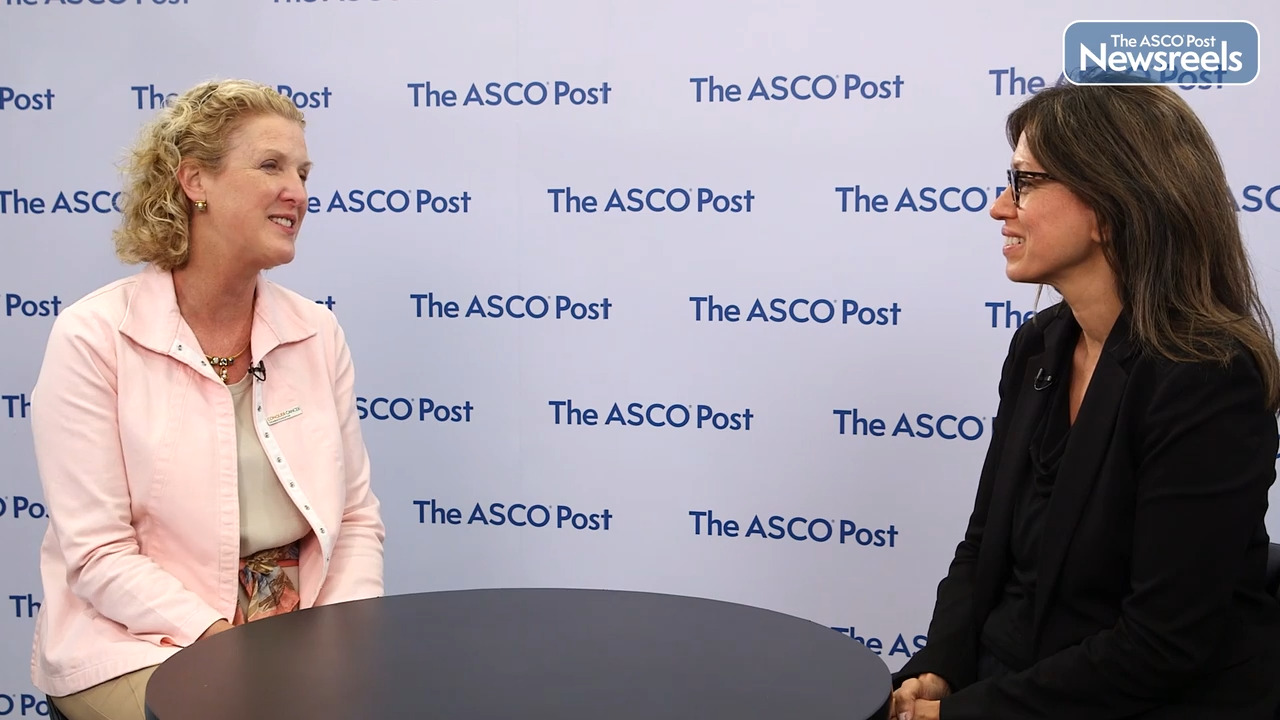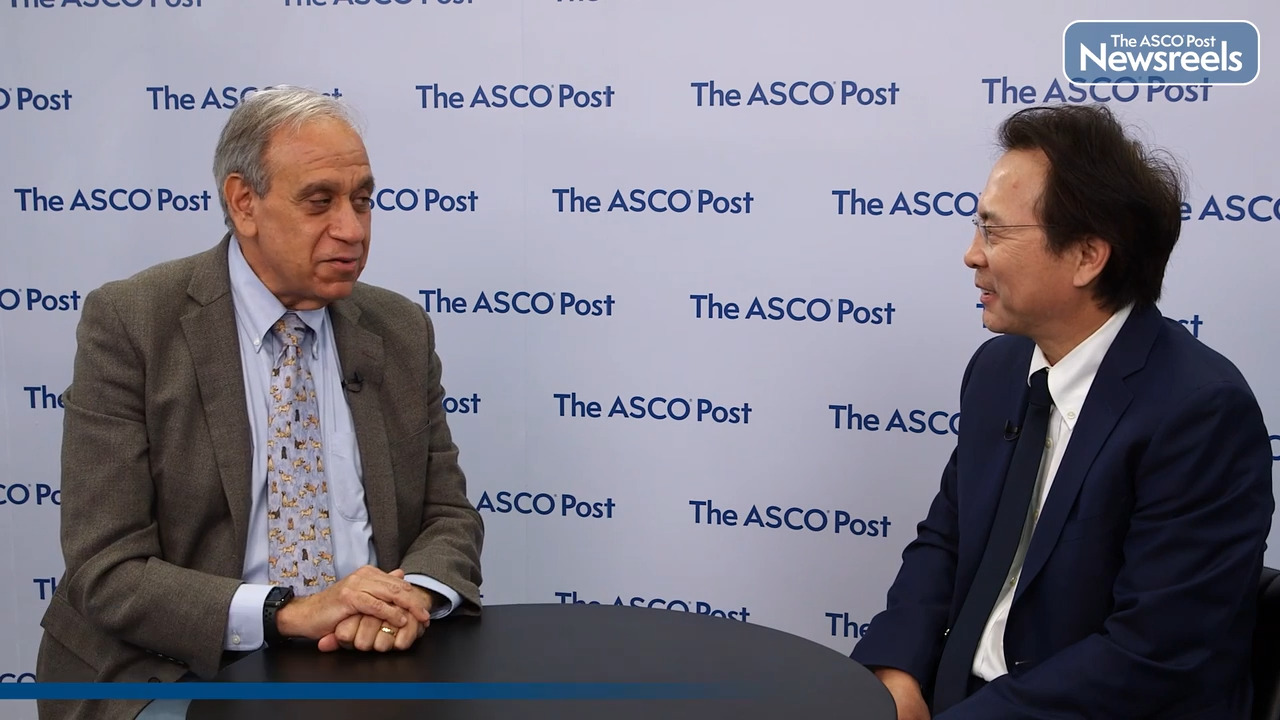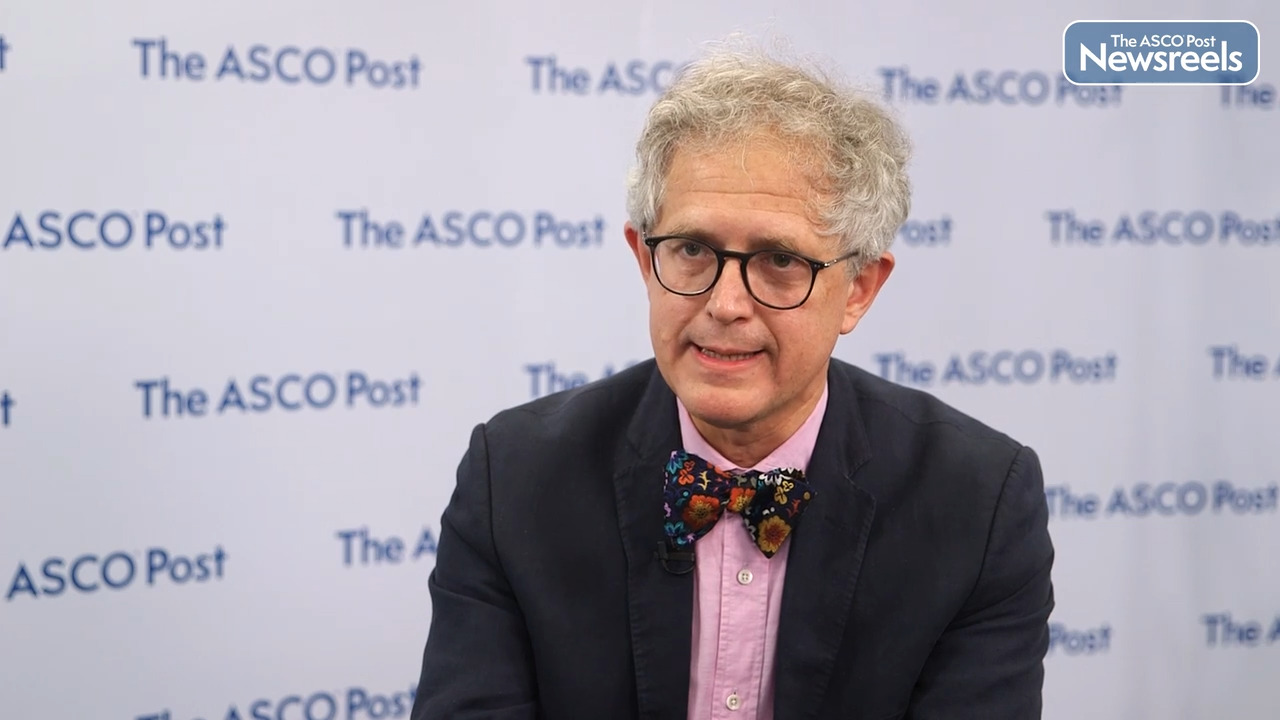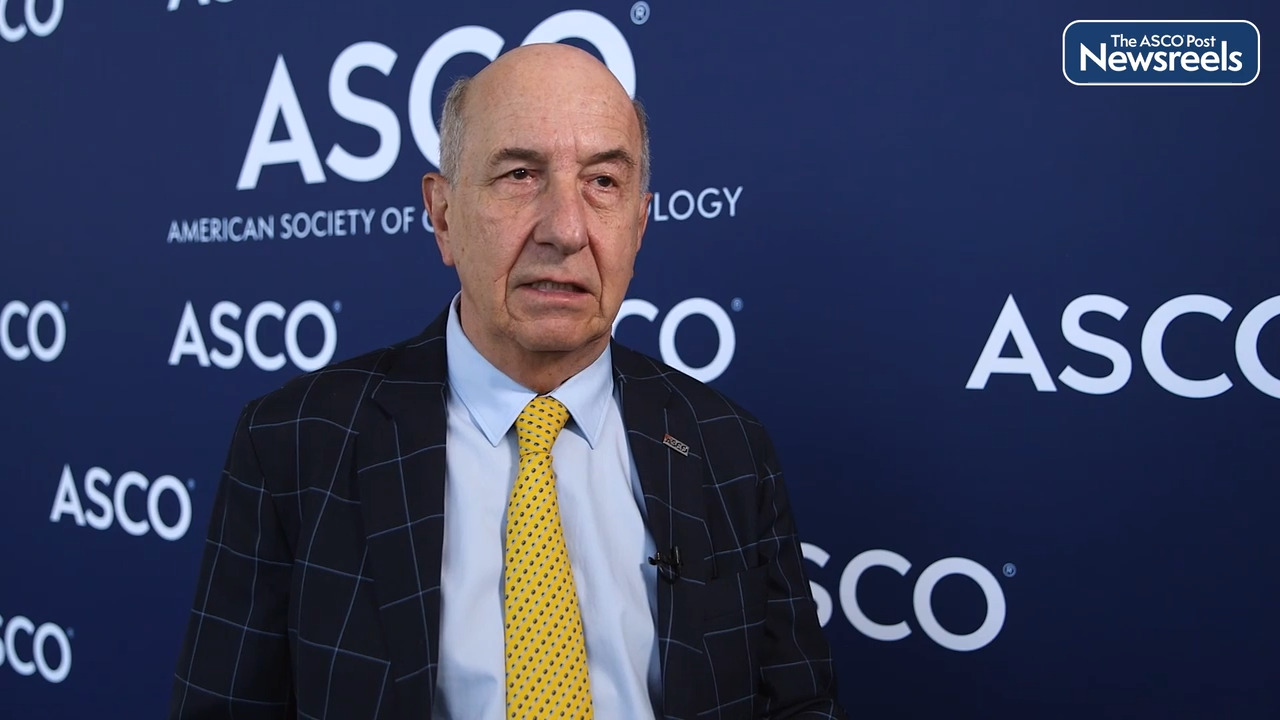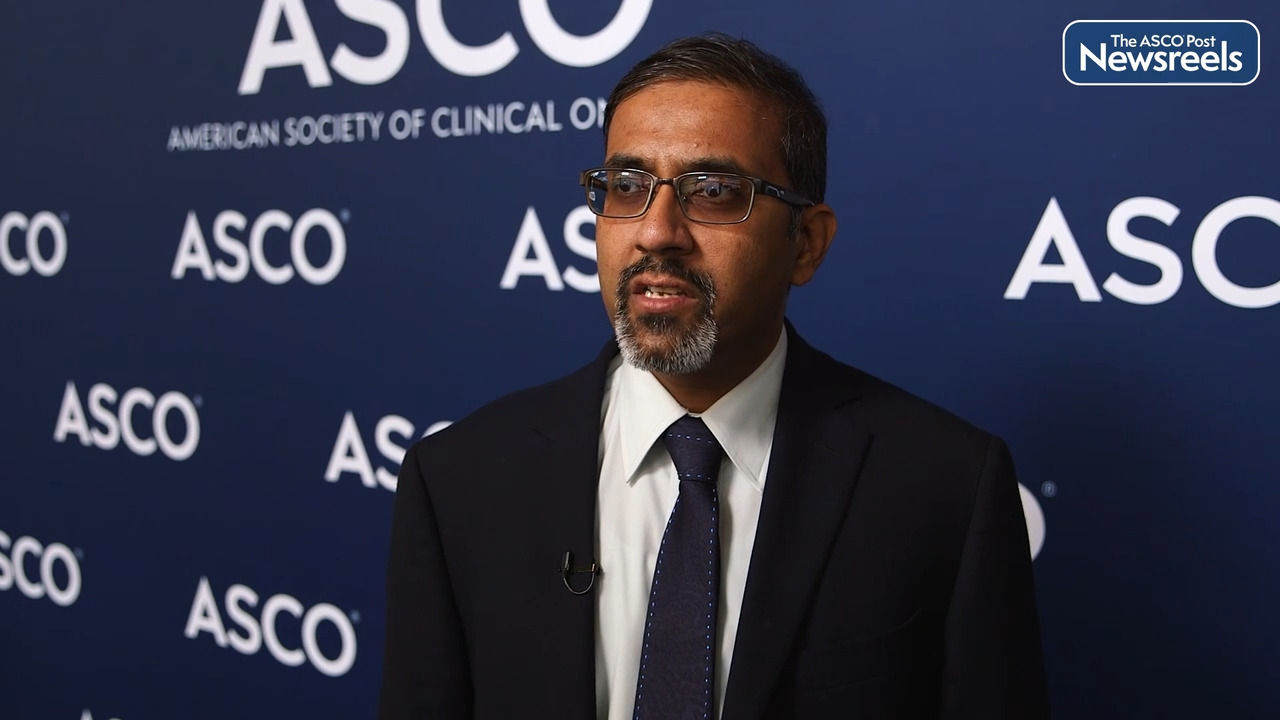Transcript
Disclaimer: This video transcript has not been proofread or edited and may contain errors.
Courtney DiNardo: Well, it is such a pleasure to be joined by you today, my friend and colleague, Dr. Stéphane de Botton. I was hoping you could kind of recap a little bit some of the data that you presented at the ASCO meeting.
Stéphane de Botton: Well, thank you first, for the invite. These are the results of the subgroup analyzes of the IDHENTIFYtrial. The first trials that compare enocidnib in elderly population relapse, refractory AML with an IDH2 mutation to convention care regimes or NZDB. So overall these results are very encouraging because response rates were significantly better in NZDB, even for survival was significantly better. Time to treatment failure was significantly better. So we failed to demonstrate any superiority in terms of overall survival. But this is probably related to the high dropout in this study, where we saw, for instance, 20 patients who do not receive the allocated treatment before starting any treatment. So this may hamper what we've done, but globally it's positive.The key question here is about the significance of the two variants. The 142, which represents three quarters of the patients and the 172K. The biology is different, as you know, because the 172K is associated with less mutations and very specific co mutational burden. Great. Therefore, we try to analyze these data as based on the trial, because it'll be probably different at frontline. And first we found that overall, for both mutations, the response rate was significant. I know you're not surprised because you've seen these results.
Courtney DiNardo: If I remember they were about the same as what was seen in the original phase one study.
Stéphane de Botton: Almost yes.
Courtney DiNardo: So about. 20% CR, 30% CR CRH, 40% overall response rates, more or less
Stéphane de Botton: Exactly. So, overall the response rates was better. Whatever, the type of variants you have. First, the commutation in burden was different between de novo or newly diagnosed AML and relapse refractory. This is anticipated. And not that with the 172K, 20% add a TB3 mutation, which is high.
Courtney DiNardo: Yeah. That is higher than I would've expected otherwise.
Stéphane de Botton: Yep. And the higher incidents in both for ranks one, which is less, usually in newly diagnosed. So the pattern of mutations were also different. So the competition burden was higher in the 142 as expected. The median was five as opposed to four in the 172K and different mutation. So in that case, we thought that the results could be different and indeed they are different. With the 142 we are not very confident because the drop out was huge in the study. But with the 172K only one patient did not receive the allocated treatment in their conventional care. I would like to say that we are very confident about the robustness for the 172K of these results.
Courtney DiNardo: And just recap again, real quick, the differential. So it was the R 172K patients that seemed to do particularly well with enasidanib? Or how would you describe that?
Stéphane de Botton: Ah, so the response rate was really very impressive yeah. In that elderly, very pretreated population. So they achieved an overall response rate above 50%, with more than 30% of CR rates. So it's fairly high, but truly what was really impressive is the overall survival, almost 15 months, median overall survival for the 172K treated with ENA as opposed to those were once receive ENA in which the overall survival was almost eight months. So you double the overall survival. For event free survival was really, also very impressed. More than 10 months, as opposed to less than three.
Courtney DiNardo: It really is. So the R 172K IDH2 mutated patients. So that's about a quarter to a third of the IDH2, mutated patients in general, in the relapse setting, single agent, seeing a median survival over a year, about 15 months, it's dramatic.
Stéphane de Botton: It's fairly high and it represents a good demonstration that it's a very good target. This is not the monogenic disease, but if the commutation of burden, we previously published together that you increase the response rate and was exactly the same. But here you increase the overall survival in that subpopulation. So again, the tolerance was very good. There's nothing more to say. It's really very impressive.
Courtney DiNardo: It's a well tolerated therapy targeted for patients with IDH2.
Stéphane de Botton: In the relapse refractory setting. That's that's really something very, very impressive.
Courtney DiNardo: Perfect. Well, thank you so much for joining us. This has been a pleasure.
